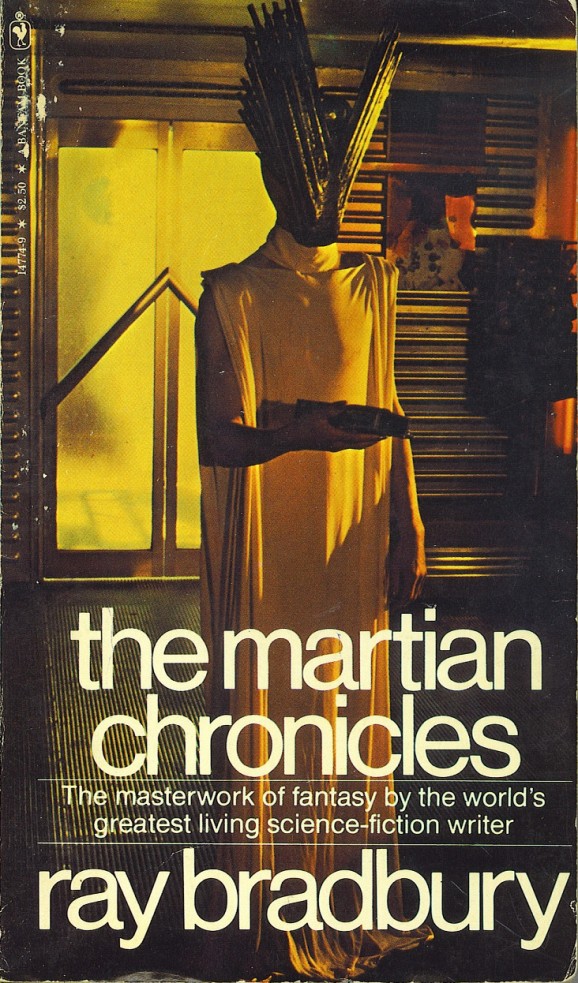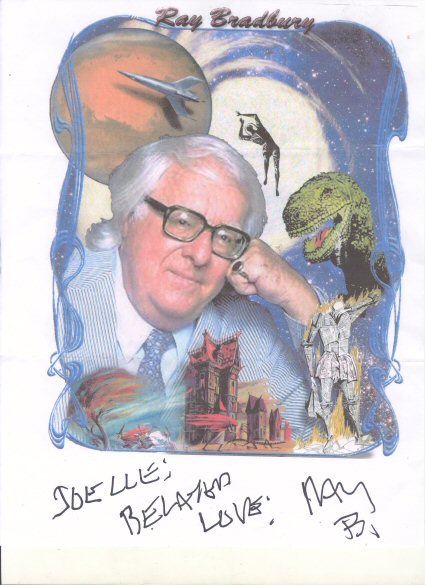Ray Bradbury’s The Martian Chronicles Blends Sci-fi And Social Commentary
This article is more than 2 years old
Full disclosure: Ray Bradbury is my hero. I sent him a long letter (an essay, really), and he sent me back an adorable signed graphic. I read him, I teach him, and I write about him. And while I like some of his works better than others, I’m hard-pressed to think of any Ray Bradbury work I don’t enjoy. Most people know him for Fahrenheit 451, an iconic piece that addresses censorship, sure, but also the foibles of humanity when it embraces misguided ideas and technologies. But as amazing as Fahrenheit 451 is, I think there are some Bradbury works that are even better. The Martian Chronicles is one of those works.

If you want hard sci-fi, you won’t find it here. Humans colonize and terraform Mars, but Bradbury won’t explain how. Suspension of disbelief is necessary from the very first page, as is a tolerance for fantasy mixed in with science fiction. The book opens with a Martian couple who happens to be just as dysfunctional as some human couples — their relationship is fraught with jealousy, mistrust, and skewed power dynamics. But juxtaposed against that human-like realness Bradbury gives us firebirds as transportation, scarves that pop out of vials, and stoves that operate via running lava. Right off the bat he makes his interest in aesthetics, imagery, and fantasy clear, and while some people might see that as blasphemous in the world of science fiction, it functions to transport and immerse the reader in this strange new world.
The book is actually a composite novel, much like Sherwood Anderson’s Winesburg, Ohio or Tim O’Brien’s The Things They Carried. Its chapters are individual short stories, most of which were published separately in different sci-fi magazines, but when you read them all together, they deliver a novel that’s more than the sum of its parts. The first few stories focus on the Martians, who, in addition to experiencing marital discord, also have telepathy. That skill allows them to pick up on the arrival of the humans, as well as the devastation that invasion will cause. Telepathy helps the Martians beat back the first couple waves of people, but…well, I bet you can guess what ultimately happens with that. The bulk of the book describes the human colonization of the planet and how they alter it to suit their own needs. The movement to Mars picks up steam when atomic war threatens to break out on Earth, which reflects concerns at the time Bradbury wrote the book (1950).

Bradbury’s social commentary is rife with prescience. He addresses everything from xenophobia and American exceptionalism to racism and classism, as well as humanity’s inability to break out of its own cycles of environmental and cultural destruction. Yet despite how gloomy all those topics sound, the writing is so poetic and the landscape so beautifully rendered that the book doesn’t feel scolding. The last story yields multiple interpretations — it could be read as pretty darn sad or ultimately uplifting, or maybe a bit of both — but I see the story and the book itself as a message of hope for humanity. Bradbury’s work demonstrates a rare ability to celebrate and warn at the same time, and this book demonstrates the union of those sentiments at their finest.
With all the current talk about colonizing Mars, Bradbury’s book has achieved new relevance. It doesn’t provide any scientific or technical insight — unless you count a dig at terraforming — but it provides plenty of cultural and ethical examination of the endeavor, particularly when it comes to what we do with any life forms we may find there, and how humans might transform through the process of colonization.












